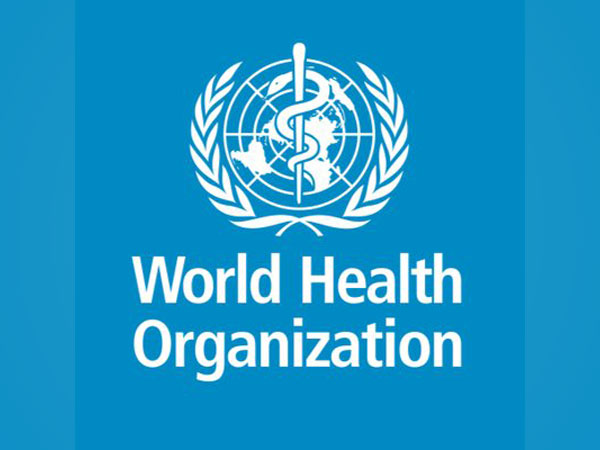Health News Roundup: N.Korea reports over 200,000 fever cases for 5th day amid COVID wave; WHO calls emergency meeting as monkeypox cases top 100 in Europe, and more
The ongoing COVID wave, declared last week, has fuelled concerns over a lack of vaccines, inadequate medical infrastructure and a potential food crisis in the country of 25 million, which has refused outside help and kept its borders shut. WHO calls emergency meeting as monkeypox cases top 100 in Europe The World Health Organization was holding an emergency meeting on Friday to discuss the recent outbreak of monkeypox, a viral infection more common to west and central Africa, after over 100 cases were confirmed or suspected in Europe.

Following is a summary of current health news briefs.
N.Korea reports over 200,000 fever cases for 5th day amid COVID wave
North Korea on Saturday reported more than 200,000 new patients suffering from fever for a fifth consecutive day, as it fought its first confirmed coronavirus outbreak. The ongoing COVID wave, declared last week, has fuelled concerns over a lack of vaccines, inadequate medical infrastructure and a potential food crisis in the country of 25 million, which has refused outside help and kept its borders shut.
WHO calls emergency meeting as monkeypox cases top 100 in Europe
The World Health Organization was holding an emergency meeting on Friday to discuss the recent outbreak of monkeypox, a viral infection more common to west and central Africa, after over 100 cases were confirmed or suspected in Europe. In what Germany described as the largest outbreak in Europe ever, cases have been reported in at least nine countries – Belgium, France, Germany, Italy, the Netherlands, Portugal, Spain, Sweden and the United Kingdom - as well as the United States, Canada and Australia.
U.S. CDC says adenovirus leading hypothesis for severe hepatitis in children
Infection with adenovirus, a common childhood virus, is the leading hypothesis for recent cases of severe hepatitis of unknown origin in children that have led to at least six deaths, U.S. health officials said on Friday. The Centers for Disease Control and Prevention (CDC) said it is continuing to investigate whether 180 cases identified in 36 states and territories since last October represent an increase in the rate of pediatric hepatitis or whether an existing pattern has been revealed though improved detection.
Explainer-What to know about mysterious severe hepatitis cases in children
At least 600 children in at least 34 countries have developed cases of sudden severe liver inflammation, or acute hepatitis, for which doctors have no explanation. Here is what health officials know so far:
Explainer-What is on (and off) the agenda of the WHO Assembly?
More than 100 world health ministers will meet in Geneva next week for the World Health Organization's first in-person assembly in three years as the U.N. agency seeks to define its future role in global health policy. The agenda of the World Health Assembly (WHA) is the most packed in the WHO's 75-year history and is seen as an historic opportunity to move on from the COVID-19 pandemic, which has led to 15 million deaths, and prepare for the next global outbreak.
Beijing city reports 63 new local COVID cases over 24 hours
Beijing reported 63 new domestically transmitted COVID-19 infections during the 24 hours to 3 p.m. (0700 GMT) on Saturday, a disease control official at the Chinese capital said. Of the infections, 56 were found in controlled areas and seven during community screening tests, Liu Xiaofeng, deputy director at Beijing Center for Disease Prevention and Control, told a news briefing.
Mexico reports first death of child from mysterious severe hepatitis
Mexican authorities confirmed on Friday the first death of a child from a severe form of hepatitis with unknown origin in the country, marking the first death in Latin America as cases spread worldwide. The three-year-old child, originally from the central state of Hidalgo, was transferred to a hospital in Mexico City, but died this week, the Hidalgo Health Secretariat said.
Cancer coalition aims to boost access to medicines in poorer countries
Pharmaceutical companies including Novartis and Roche have teamed up with global cancer organisations in an alliance aimed at getting more oncology medications to poorer countries.
Currently, fewer than 50% of the cancer drugs on the World Health Organization's (WHO) essential medicines list are available in low and middle income countries, and the disease burden is growing. Without action, almost three in four cancer deaths are set to occur in these settings in the next decade.
Explainer-How concerned should we be about monkeypox?
Global health officials have sounded the alarm over rising cases in Europe and elsewhere of monkeypox, a type of viral infection more common to west and central Africa. As of Friday, some 80 monkeypox cases have been confirmed and an additional 50 are under investigation in 11 countries, according to the World Health Organization (WHO). The following is what is known about the current outbreak and relative risk of monkeypox:
Sanofi's Dupixent wins U.S. approval for bigger use
Sanofi won expanded U.S. approval for its best-selling Dupixent injection to treat an allergic inflammation of the esophagus, the Food and Drug Administration said on Friday. There are more than 160,000 patients in the United States living with eosinophilic esophagitis (EoE), according to Sanofi.
(With inputs from agencies.)
ALSO READ
Manchester United-supported five-a-side event to be played in India; Chennai leg on Apr 6
United Airlines is asking pilots to take time off in May because of a shortage of new Boeing planes
Palestinians want April vote for full United Nations membership
Soccer-Man United's Varane says concussions have done lasting damage to body
Palestinians want April vote on full United Nations membership










